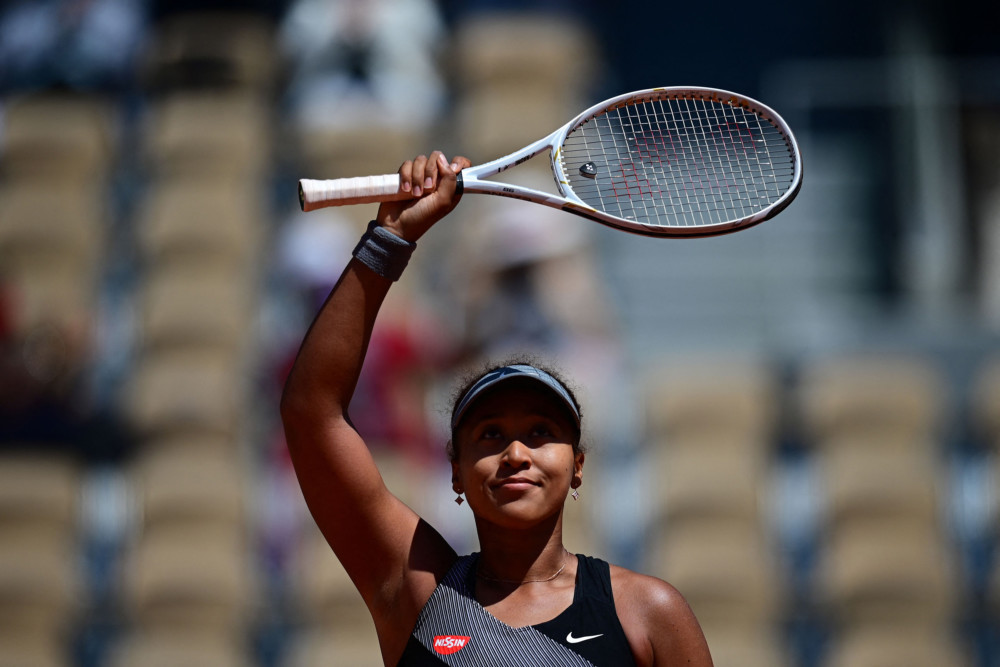Heidi Stevens
Chicago Tribune
WWR Article Summary (tl;dr) Heidi Stevens takes a look at why Naomi Osaka’s withdrawal from the French Open is an invitation for the sport to “do better” in regards to its response to mental health.
Chicago
Maybe there’s a better way.
When tennis star Naomi Osaka withdrew from the French Open on Monday rather than attend the media interviews that wreak havoc on her mental health, a whole lot of hand-wringing commenced.
The usual boorish suspects offered their usual boorish takes. Piers Morgan labeled the decision, “Narcissistic Naomi’s cynical exploitation of mental health.”
But even Billie Jean King, who knows a thing or two about shaking up the status quo, tweeted a light admonishment of Osaka: “While it’s important that everyone has the right to speak their truth, I have always believed that as professional athletes we have a responsibility to make ourselves available to the media.”
“Facing unwelcome questions, even in defeat,” sports writer Christopher Clarey wrote in the New York Times, “does not seem like too much to ask.”
Or maybe there’s a better way.
Maybe the second-ranked woman in all of tennis telling leaders of the sport that her health weighs more than their traditions is an invitation for the sport to do better.
Maybe instead of whining about Osaka’s privilege (But she’s rich!) or clinging to custom (But the rules!), fans could view her decision as groundbreaking — an attempt to propel the sport into a better, more inclusive future, not unlike King defeating Bobby Riggs in 1973′s Battle of the Sexes.
Maybe it’s time to truly examine the ways that athletes are commoditized and dehumanized, simply because the public enjoys watching them perform remarkable feats, simply because that public is fickle and also enjoys poking the wounds of our heroes when they fall.
Maybe there’s a better way.
And maybe, as we emerge from a pandemic that shook up everything and everyone, that could be our mantra in all things: Maybe there’s a better way.
A Bloomberg article this week interviewed workers who are quitting their jobs rather than adhere to employers’ demands that they return to the office, after more than a year of remote work.
“They feel like we’re not working if they can’t see us,” Portia Twidt, a Georgia-based research compliance specialist, told Bloomberg. “It’s a boomer power-play.”
A May survey of 1,000 U.S. adults found 39% would consider quitting if their employers weren’t flexible about remote work, Bloomberg reported. Among millennials and Gen Z, that figure rose to 49%.
This will, no doubt, be met with a lengthy round of back-in-my-day complaining and millennial/Gen Z bashing.
But it could just as easily, and a whole lot more productively, be a catalyst for transformative, lasting change.
The coronavirus pandemic laid bare our structural inequities, our health disparities, our desperate need for more mental health resources and the holes in our public safety nets. It forced us to invent and improvise, question and calibrate. It robbed us of loved ones and livelihoods.
And now it’s slowly receding, allowing us to rebuild and reimagine. And we should do that with an eye toward a better way, not just the old way.
“I’m gonna take some time away from the court now,” Osaka wrote on Instagram, explaining her decision to quit the French Open. “But when the time is right I really want to work with the Tour to discuss ways we can make things better for the players, press and fans.”
She wrote that she’s suffered long bouts of depression since 2018 and that news conferences trigger her anxiety.
“I think now the best thing for the tournament, the other players and my well-being is that I withdraw so that everyone can get back to the tennis going on in Paris,” she wrote. “I never wanted to be a distraction and I accept that my timing was not ideal and my message could have been clearer.”
Osaka is not a public servant. She doesn’t owe us access or answers. Her job is tennis, and her health is her right. That’s something I would hope a pandemic would crystallize for us.
Her decision shocked a lot of systems, particularly those wedded to the status quo. But it could also be instructive and inspiring, as we emerge into a transformed and transforming world, post-pandemic.
Maybe there’s a better way. And maybe we should thank the folks who help us search for it.
Distributed by Tribune Content Agency, LLC.















































































































































































































































































































































































